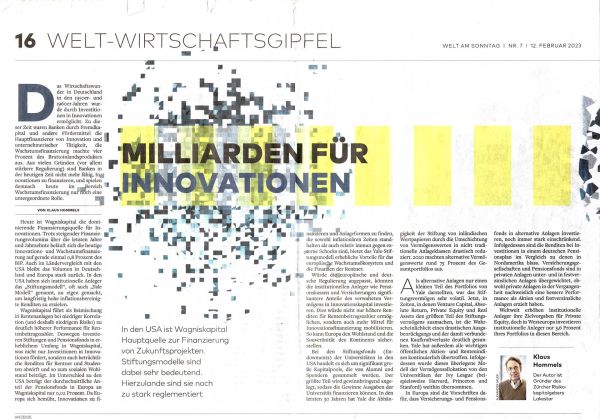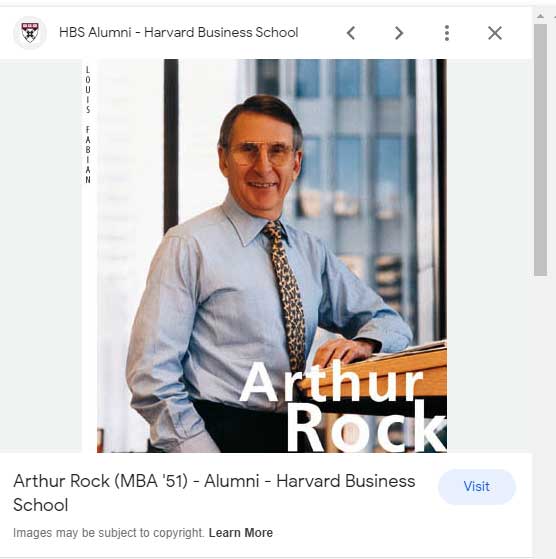Capital for Innovation
CAPITAL FOR INNOVATION
The title in English means "Billions for Innovation." The author, venture-captialist Klaus Hommels, warns Europeans that they have neglected investment for technological innovation and for start-ups. He reminds younger Germans that the "Wirtschaftswunder," the post-war reemergence of Germany, from the ruins of World War II into a modern super-power, depended heavily on capital-investment, to the tune of 4% of the nation's gross domestic product! Financing under the aegis of the Marshall Plan provided much of that initial financing.
Today, capital investment in Germany has slid to .8% of the GDP, while in most European nations, the level is no more than .02%. Hommels warns that Europe's industrialized nations cannot afford to neglect innovation and entrepreneurship. The neglect puts them at a disadvantage in comparison with more entrepreneurial nations likeAmerica, because American entrepreneurs can count on so many sources of start-up capital. Not surprisingly, American billionaires occupy seven spaces in the list of the World's richest people.
2. Elon Musk founded Tesla Motors and Space-X.
3. Jeff Bezos founded Amazon.
4. Larry Ellison founded Oracle.
5. Warren Buffett built up the biggest investment company from scratch.
6. Bill Gates founded Microsoft,
7. Michael Bloomberg founded Bloomberg Terminal and Bloomberg News.
10. Michael Ballmer, former CEO of Microsoft.
Of the top twenty billionaires, fourteen are American. In total, the U.S. is home to 607 billionaires, almost twice as many as the 2nd-place country, China. How did they become so wealthy? For most, the answer is start-up capital. A venture-capitalist offered them financial support and signed on as a partner or major stockholder. Often, a venture-capitalist will first start up his own firm; then employ his capital to underwrite other start-ups.
Peter Thiel is the perfect example of someone who does both business start-ups and venture capital. He "co-founded" Paypal, says Wikipedia in its article on Thiel. After that, he "launched" Palantir Technologies. On the venture-capital side, he "launched" the Founders Fund and then "co-founded" Valar Ventures.
Many Americans resent the influence and greed of venture capitalists and entrepreneurs. I wish we had more of them. The British writer Rudyard Kipling asks in his poem "If" Can you make one heap of all your winnings and risk it on one turn of pitch-and-toss? Most Americans would answer no, outright. But entrepreneurs and venture-capitalists do it all the time, and we need their courage and initiative. Most of the countries of Europe do not have an environment that permits outlier thinkers to thrive, so they have fallen behind the U.S.
Not surprisingly, many venture-capitalists are also quite wealthy:
1. Arthur Rock financed the start-up Microsoft, before it even had a name. Rock also helped with the creation of Fairchild Semiconductor, Intel, and Apple Computers.
2. Eugene Kleiner helped finance Fairchild Semiconductor and Intel. Wikipedia writes that Kleiner invested in 300 companies, including Amazon, AOL, Netscape, and Sun Microsystems.
3. David Marquardt was an early investor in Microsoft.
The negativity of Facebook-bloggers notwithstanding, the entrepreneurs and venture capitalists are America's real poster-boys. When Americans wonder why so many people want to emigrate here or sneak in, one only has to look at America's entrepreneurs and venture capitalists. The immigrants value wealth a lot more than Facebook's fastidious moralists.



